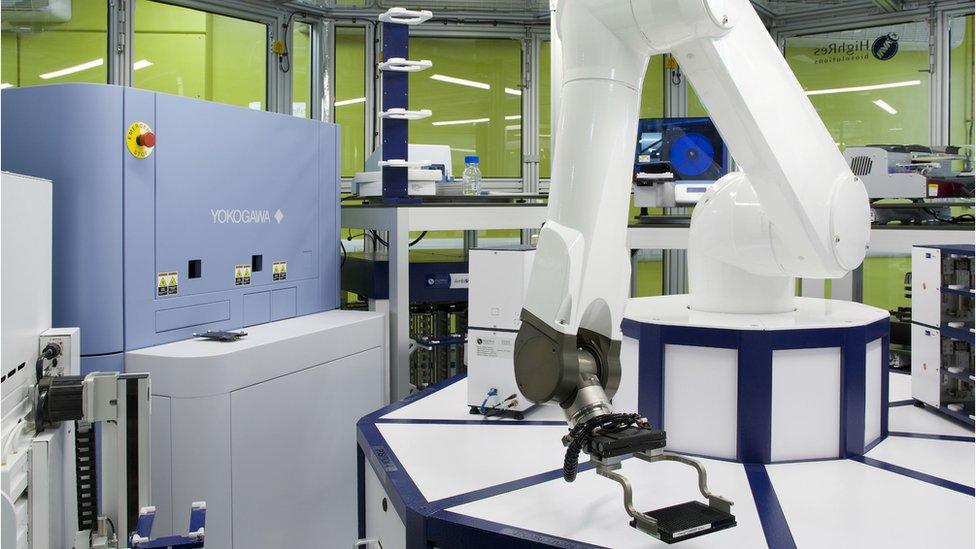Dundee University male pill research aims to 'stop sperm in its tracks'
- Published

The robotic system screened thousands of clinically-tested drugs
Dundee University researchers aiming to develop a male contraceptive pill have published the first results from their new robotic screening system.
The system allows the research team to rapidly test the effect of drugs and other chemicals on human sperm.
Their study has found, external that it is possible to find effective agents that halt the sperm in its tracks.
They will now investigate if any of these agents are suitable for long-term use in men.
The Dundee team screened one of the world's largest collections of previously-approved and clinically-tested drugs, about 13,000 in total.
They began work to develop a safe and effective male contraceptive pill last year thanks to a grant of about $900,000 (£716,670) from the Bill and Melinda Gates Foundation.

The team say a male pill could help to prevent millions of unwanted pregnancies across the world
One of the most critical functions for sperm is to move to the site of fertilisation.
The team's research paper reports the results of a systematic search for drugs that block sperm motility, the ability to move independently.
Chris Barratt, professor of reproductive medicine, said the new method was a "breakthrough in technology for the area."
He said: "It allows us for the first time to assess in large numbers how compounds can affect sperm function.
"Surprisingly, there has been no effective, reversible and widely-available form of contraception developed for the male since the condom and, as such, the burden falls largely to the female.
"Finding an effective male contraceptive would be a major step in addressing that inequality."
- Published26 March 2019

- Published1 February 2019
